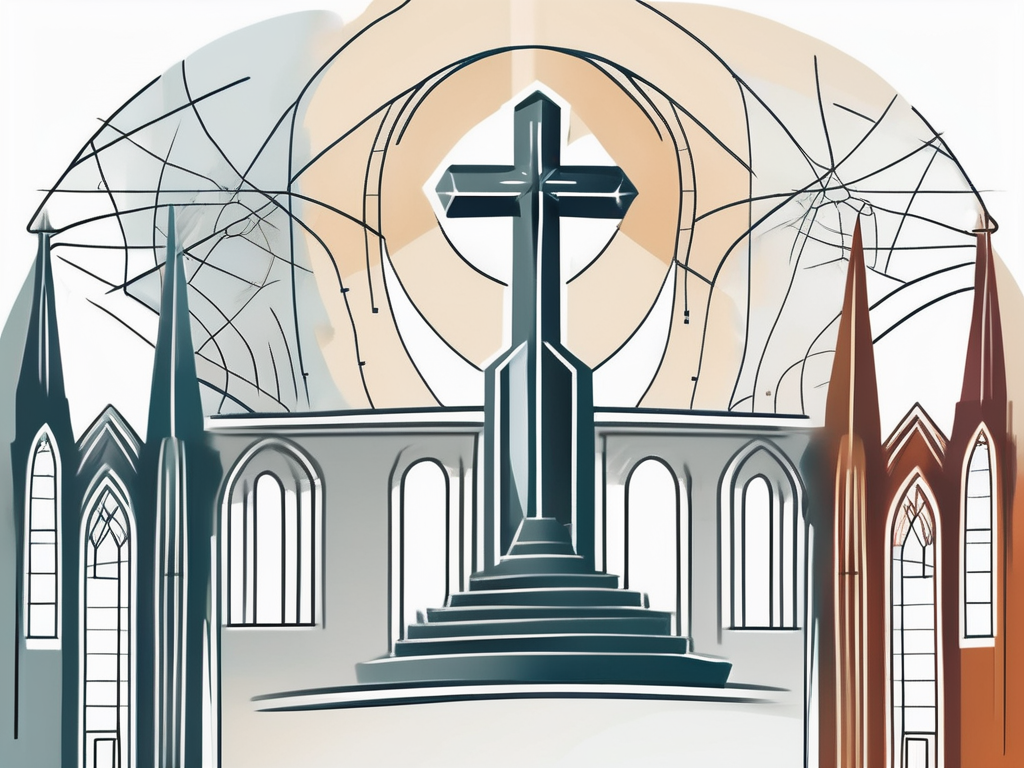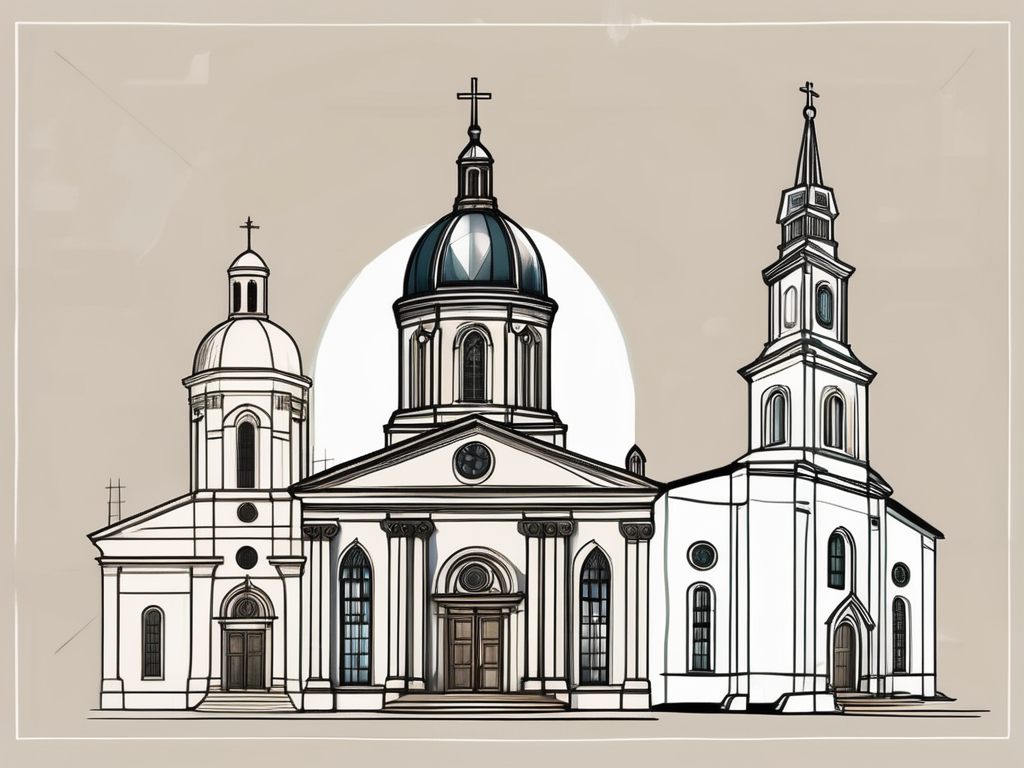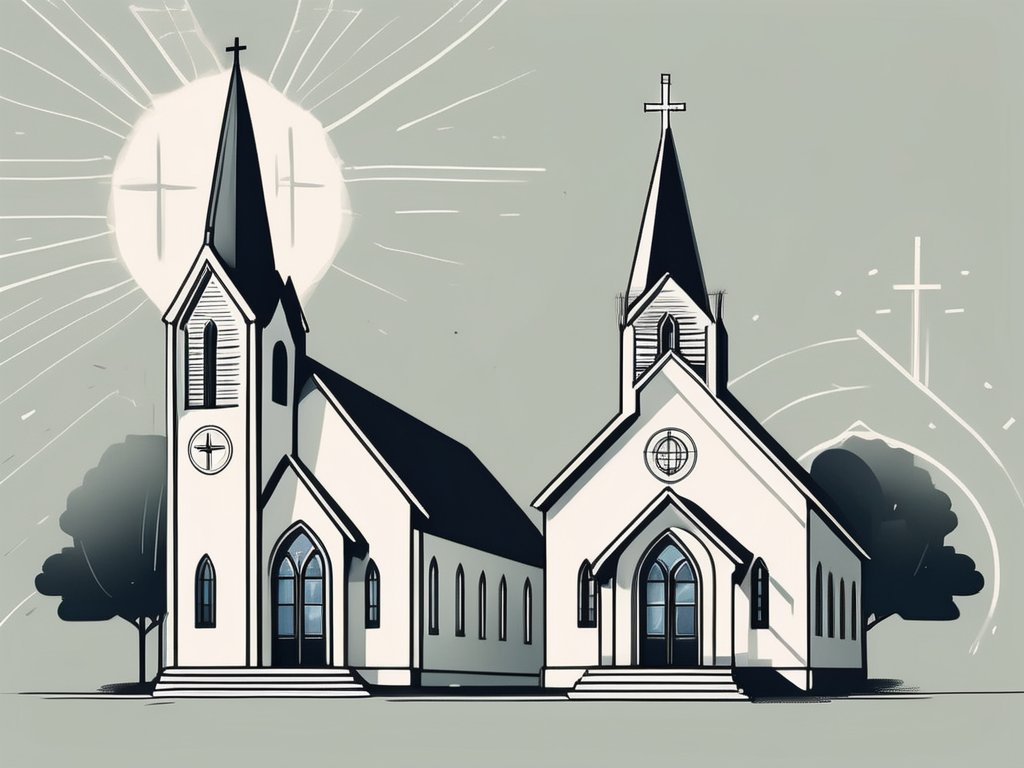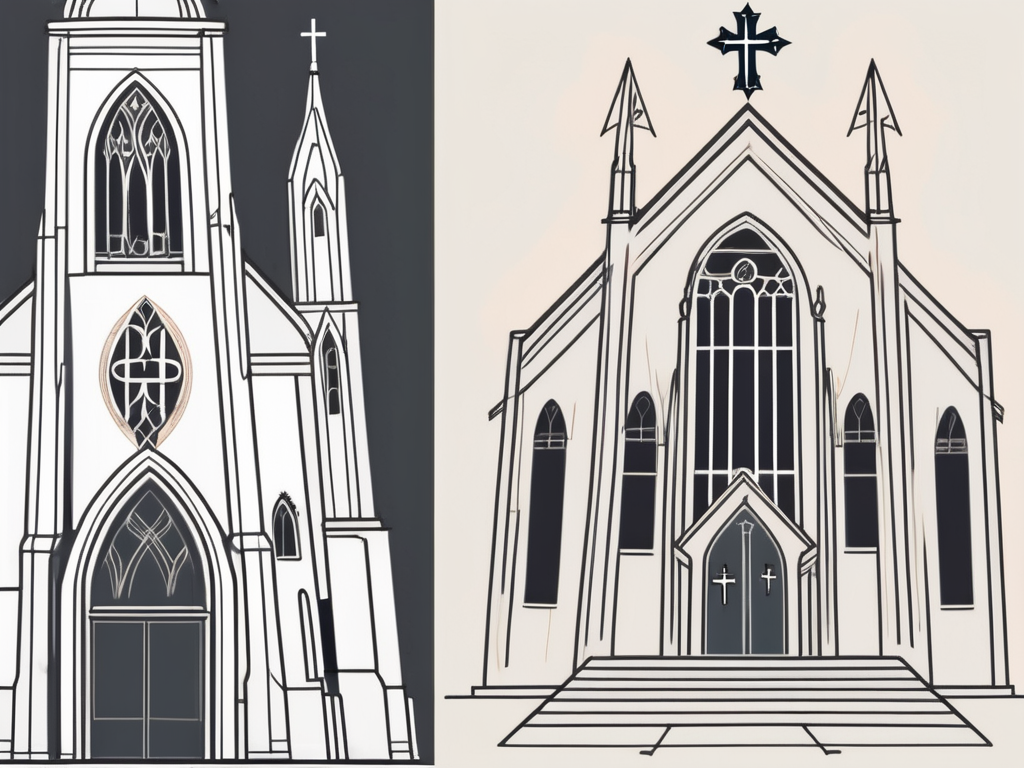In today’s diverse world, it’s important to appreciate and understand different religions and their beliefs. One such religion is Methodism, a branch of Christianity that originated in the 18th century. In this comprehensive guide, we will delve into the origins, key principles, worship experience, views on social issues, and global impact of Methodism. So sit back, relax, and let’s embark on a journey to understanding Methodist beliefs.
The Origins of Methodist Beliefs
Methodism has a rich history that dates back to the 18th century in England. At the forefront of this movement was a man named John Wesley, who played a pivotal role in shaping Methodism as we know it today.
John Wesley, along with his brother Charles Wesley, and a few other like-minded individuals, sought to reform the Anglican Church. Their emphasis on personal piety, devotion, and disciplined living caught the attention of many, leading to the birth of the Methodist movement.
Their desire for reform was not unfounded. The Anglican Church at the time was facing various challenges, including a lack of spiritual fervor and a disconnect between the clergy and the common people. John Wesley recognized these issues and believed that a return to the core principles of Christianity could revitalize the Church.
The Role of John Wesley in Shaping Methodism
John Wesley’s influence on Methodism cannot be overstated. He was not only a renowned preacher but also a prolific writer, producing numerous sermons, letters, and theological treatises. Wesley emphasized the importance of personal holiness and the need for individuals to have a personal relationship with Christ.
Wesley’s teachings on the role of faith, good works, and the pursuit of perfect love resonated with many, making Methodism one of the fastest-growing religious movements of its time.
Wesley’s commitment to social justice was also a defining characteristic of Methodism. He advocated for the rights of the poor, the abolition of slavery, and prison reform. Wesley believed that true faith should be accompanied by actions that reflect God’s love for all people.
The Influence of the Anglican Church
While Methodism sought to reform the Anglican Church, it never fully separated from its roots. The Anglican Church had a profound impact on Methodism, shaping its liturgical practices, organizational structure, and the theological framework.
Methodists adopted many Anglican traditions, such as the use of the Book of Common Prayer and the sacraments of baptism and Holy Communion. This close relationship with the Anglican Church allowed Methodism to maintain a unique blend of evangelical zeal and sacramental worship.
However, Methodism also introduced some distinct practices and beliefs. For example, Wesley introduced the concept of “class meetings,” small groups where Methodists would gather to discuss their spiritual journeys and hold each other accountable. These meetings provided a sense of community and support that was lacking in many Anglican parishes.
Methodism also placed a strong emphasis on evangelism and mission work. Wesley and his followers were passionate about spreading the message of God’s love and salvation to all people, regardless of social status or background. This focus on outreach and inclusivity continues to be a hallmark of Methodism today.
In conclusion, the origins of Methodist beliefs can be traced back to the efforts of John Wesley and his desire to reform the Anglican Church. Wesley’s teachings on personal holiness, faith, and social justice resonated with many, leading to the rapid growth of Methodism. While Methodism maintained a close relationship with the Anglican Church, it also introduced unique practices and beliefs that continue to shape the Methodist tradition.
Key Principles of Methodist Doctrine
Central to Methodist beliefs are the key principles that guide their faith and practice. Let’s explore these principles, which form the foundation of Methodist doctrine.
Methodism, a branch of Protestant Christianity, is characterized by its emphasis on personal piety, social justice, and the pursuit of holiness. The Methodist Church traces its roots back to the 18th century, when it emerged as a movement within the Church of England led by John Wesley and his brother Charles Wesley.
The Methodist Church places great importance on the authority of Scripture, the teachings and practices of the early Church, the use of reason in theological interpretation, and personal experiences of God’s grace. These principles, known as the Quadrilateral, shape the Methodist understanding of God and His will.
The Quadrilateral: Scripture, Tradition, Reason, and Experience
The Quadrilateral is a distinctive aspect of Methodist theology. It recognizes four sources of authority: Scripture, Tradition, Reason, and Experience. Methodists believe that these four elements work together to shape and inform their understanding of God and His will.
- Scripture: The Bible serves as the ultimate authority for Methodists. They seek to interpret and apply its teachings in light of its historical and cultural context. Methodists hold the belief that the Bible contains all things necessary for salvation and provides guidance for Christian living.
- Tradition: Methodist beliefs are also shaped by the teachings and practices passed down through generations. They value the insights and wisdom of the early Church Fathers and the historical traditions of Christianity. Methodists see themselves as part of the larger Christian tradition and seek to learn from the wisdom of those who have gone before them.
- Reason: Methodists emphasize the use of reason in understanding and interpreting theological concepts. They believe that faith and reason are not mutually exclusive but rather complement each other. Methodists encourage critical thinking and the exploration of theological questions, recognizing that reason can help deepen one’s understanding of God.
- Experience: Personal experiences of God’s grace and the work of the Holy Spirit play a vital role in Methodist beliefs. They believe that these experiences validate and affirm their faith. Methodists emphasize the importance of a personal relationship with God and the transformative power of God’s grace in one’s life.
The Concept of Prevenient Grace
Another important concept in Methodist doctrine is the idea of prevenient grace. Methodists believe that God’s grace is present in every person’s life even before they have faith. This grace works to draw individuals towards God and prepares their hearts to respond to His call.
Prevenient grace is seen as God’s initiative in reaching out to humanity, awakening them to their need for salvation. It is through this grace that individuals are able to freely choose to accept or reject God’s offer of salvation. Methodists believe that God’s grace is available to all people, regardless of their background or circumstances.
This concept of prevenient grace highlights the Methodist belief in the universality of God’s love and the possibility of salvation for all. It emphasizes the role of God’s grace in the process of salvation and the importance of human response to God’s invitation.
Methodist theology places a strong emphasis on the transformative power of God’s grace, which enables individuals to grow in holiness and live out their faith in the world. This emphasis on personal piety and social justice is reflected in the Methodist commitment to works of mercy and acts of compassion towards those in need.
In conclusion, the key principles of Methodist doctrine, including the Quadrilateral and the concept of prevenient grace, provide a rich theological framework for understanding God and His relationship with humanity. These principles guide Methodists in their pursuit of spiritual growth, social justice, and the transformation of the world according to God’s will.
The Methodist Worship Experience
The Methodist worship experience is characterized by a blend of structured liturgy and heartfelt expressions of faith. Let’s take a closer look at what you can expect when attending a Methodist service.
When you enter a Methodist church, you will immediately notice the sense of reverence and community that fills the space. The sanctuary is often adorned with beautiful stained glass windows, symbolizing the rich history and traditions of the Methodist faith. The atmosphere is warm and inviting, creating a sacred space where worshippers can come together to connect with God and one another.
The Structure of a Methodist Service
A typical Methodist service follows a well-defined structure that includes elements of praise, prayer, Scripture reading, preaching, and sacraments. Services often begin with an opening hymn followed by a call to worship and invocation.
As the congregation gathers, the sound of voices joining together in song fills the air. The hymns chosen for each service are carefully selected to align with the theme of the day and to evoke a sense of worship and reflection. The melodies and harmonies blend together, creating a beautiful symphony of praise.
The congregation engages in responsive readings, recites creeds, and offers prayers of intercession. These moments of communal participation allow worshippers to actively engage with the liturgy and express their own personal prayers and petitions.
The centerpiece of the service is the sermon, where the minister delivers a message rooted in Scripture, addressing matters of faith, and encouraging spiritual growth. The sermon is a time of deep reflection and learning, as the minister shares insights and wisdom drawn from the Bible and the teachings of John Wesley, the founder of Methodism.
Throughout the service, there are also opportunities for the congregation to receive the sacraments of Holy Communion and Baptism. These sacraments hold great significance in the Methodist tradition, serving as visible signs of God’s grace and the believer’s commitment to their faith.
The service concludes with a time of response and reflection, often accompanied by heartfelt hymns and a benediction. This is a moment for worshippers to internalize the message they have heard, to respond to God’s call, and to carry the spirit of worship with them as they go out into the world.
As you leave the sanctuary, you may notice a sense of renewed hope and inspiration among the congregants. The Methodist worship experience is not just about attending a service; it is about encountering the living God and being transformed by His love and grace.
The Importance of Hymn Singing
Hymn singing holds a special place in the hearts of Methodists. Charles Wesley, John Wesley’s brother, penned thousands of hymns that continue to be sung in Methodist churches worldwide.
Methodists view hymns as a means of expressing their faith and connecting with God on a personal level. The lyrics often reflect Methodist beliefs, emphasizing themes of God’s grace, salvation, and discipleship.
Whether it’s the timeless classics like “Amazing Grace” or modern compositions, hymns continue to play an integral role in Methodist worship, fostering a sense of community and spiritual reflection.
As the congregation raises their voices in unison, the power of music fills the sanctuary. Hymns have a way of touching the soul, stirring emotions, and drawing worshippers closer to God. They serve as a reminder of the rich heritage of the Methodist faith and the enduring power of God’s love.
Each hymn holds a story, a message that resonates with worshippers in different ways. Some hymns bring comfort and solace in times of sorrow, while others inspire and uplift during moments of celebration and joy. The act of singing together creates a sense of unity, as voices of all ages and backgrounds blend together in harmonious praise.
Methodist hymns are not just sung; they are experienced. They have the power to transport worshippers to a place of deep spiritual connection, where hearts are opened, and souls are nourished.
So, as you attend a Methodist service, be prepared to immerse yourself in the beauty of hymn singing. Let the melodies and lyrics wash over you, and allow yourself to be carried away by the collective voice of the congregation. In this sacred act of worship, you will find a profound sense of belonging and a deeper understanding of the Methodist faith.
Methodist Views on Social Issues
Throughout history, Methodism has been closely associated with social justice and advocating for the marginalized. Let’s explore how Methodists approach social issues.
Methodism and Social Justice
Methodists believe that their faith is not just about personal salvation but also about living out the gospel in tangible ways. They actively engage in social justice issues, striving to follow Jesus’ example of compassion, mercy, and justice.
Methodists have a long-standing tradition of championing causes such as poverty alleviation, racial equality, gender equality, and human rights. They believe in standing up for the oppressed and working towards a more just and equitable society.
The Methodist Stance on Contemporary Issues
Methodism is a diverse denomination, and opinions on contemporary issues vary among its members. However, there are some broad principles that inform Methodist perspectives.
On issues such as same-sex marriage, abortion, and environmental stewardship, Methodists hold differing views. While some advocate for more progressive stances, others maintain a more traditional outlook based on their interpretation of Scripture and theological convictions.
Despite these differences, Methodists generally strive for respectful dialogue and mutual understanding, recognizing the need for unity amidst diversity.
The Global Impact of Methodism
Methodism’s influence stretches far beyond its origins in England. Let’s explore the global impact of this vibrant religious movement.
Methodism in the United States
In the 18th century, Methodist preachers such as Francis Asbury and Thomas Coke brought Methodism to the shores of the United States. From there, it spread rapidly, gaining popularity among both European settlers and African Americans.
Methodist churches and institutions continue to flourish in the United States, playing a significant role in shaping the religious landscape and contributing to society through their educational, healthcare, and social service endeavors.
Methodism Around the World
Methodism’s influence extends to every corner of the globe. Methodist churches can be found in countries such as South Korea, Nigeria, Brazil, and the Philippines, among others.
Methodism’s emphasis on personal holiness, social justice, and evangelism resonates with people from diverse cultural backgrounds, making it one of the fastest-growing Christian denominations worldwide.
Methodists continue to make a positive impact by actively engaging in mission work, humanitarian efforts, and community development projects in countries where Methodism has taken root.
As we conclude our comprehensive guide to understanding Methodist beliefs, we hope that you have gained valuable insights into this rich religious tradition. Methodist beliefs are rooted in a commitment to personal holiness, social justice, and a vibrant worship experience. Whether you are a Methodist or simply curious about this particular faith, we encourage you to further explore the depths of Methodist theology and engage in dialogue with members of the Methodist community.
Remember, understanding and respecting diverse religious beliefs is an essential step towards fostering a more inclusive and compassionate society.












